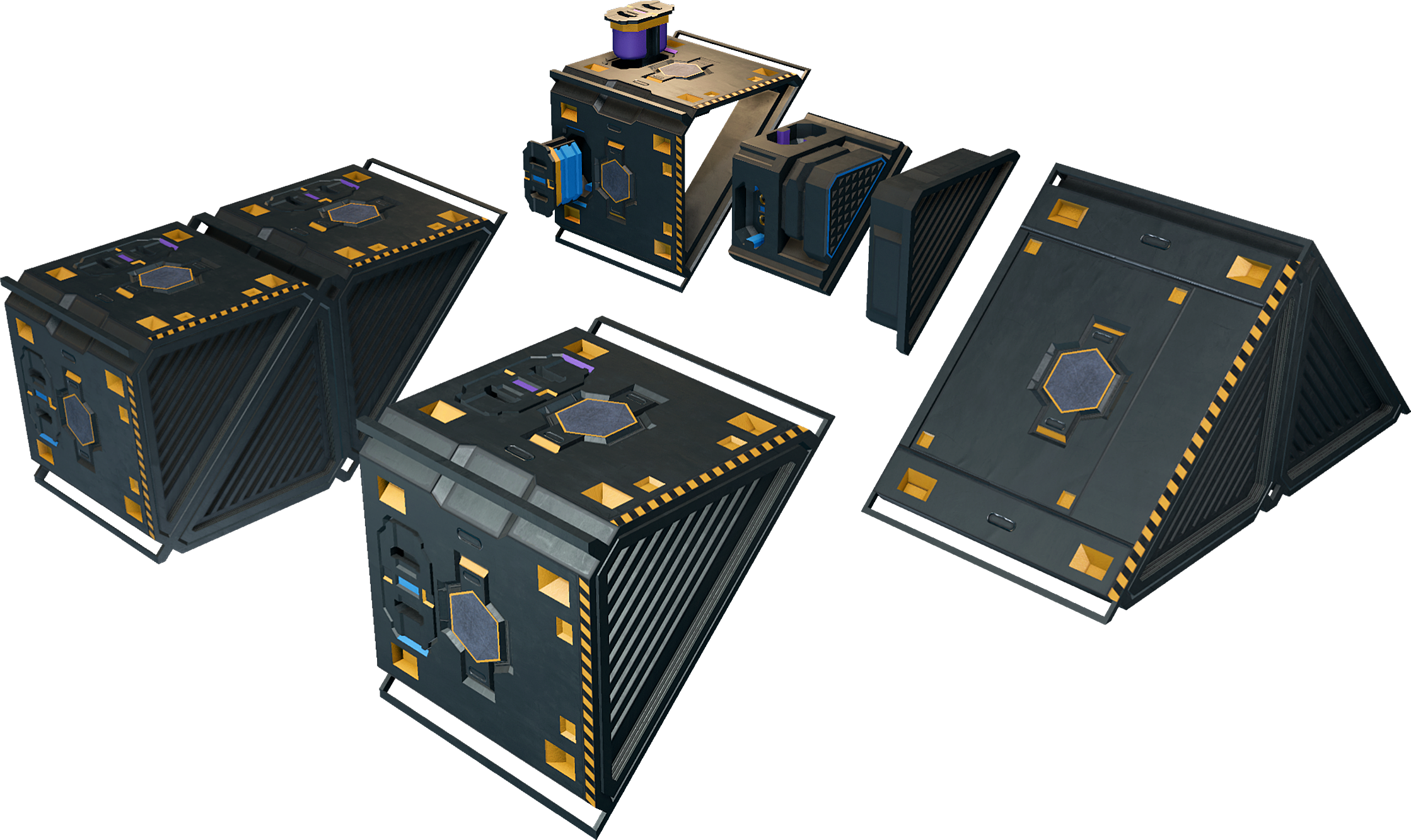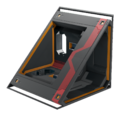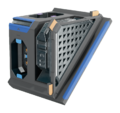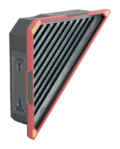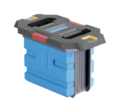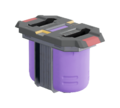Difference between revisions of "Triangle thruster"
(removed graph since info outdated) |
m |
||
| Line 68: | Line 68: | ||
* [[Data networks|Data networks]] | * [[Data networks|Data networks]] | ||
* [[YOLOL|YOLOL]] | * [[YOLOL|YOLOL]] | ||
[[Category:Devices and machines]] | [[Category:Devices and machines]] | ||
Revision as of 12:50, 24 June 2021
Triangle thrusters are a type of thruster which are uniquely modular: Each triangle thruster has three ports on its sides, through which it can share propellant, power, and thrust states with adjacent triangle thrusters. Each bank of connected triangle thrusters requires only one device base for all of the thrusters contained within it, but it does come at the cost of some fine control as the thrusters within a group cannot fire individually.
Basic information
Triangle thrusters are composed of five distinct components:
- The body, which houses the other components and provides convenient mounting surfaces. The body also holds two of the modular ports.
- The chamber, which burns propellant to produce thrust. The chamber holds the final modular port.
- The nozzle, which channels the exhaust out of the chamber (thus producing thrust).
- The electricity converter, which converts power from generators and batteries into power usable by the thruster.
- The gas converter, which prepares propellant to be burnt.
Despite their relatively low thrust power (300,000 per unit), the modularity and ease-of-use that triangle thrusters offer is unmatched, though one does need to be careful to properly protect grouped thrusters as the destruction of just a few units can cause a total disruption of the entire thruster bank.
Device fields
Triangle thruster body
| YOLOL field | description | range |
|---|---|---|
| ThrusterState | Requested output of the thruster | 0 - 10 000 |
| ThrusterCurrentThrust | Current output of the thruster | 0 - 10 000 |
To learn more about how to use fields, consult these wiki pages:
